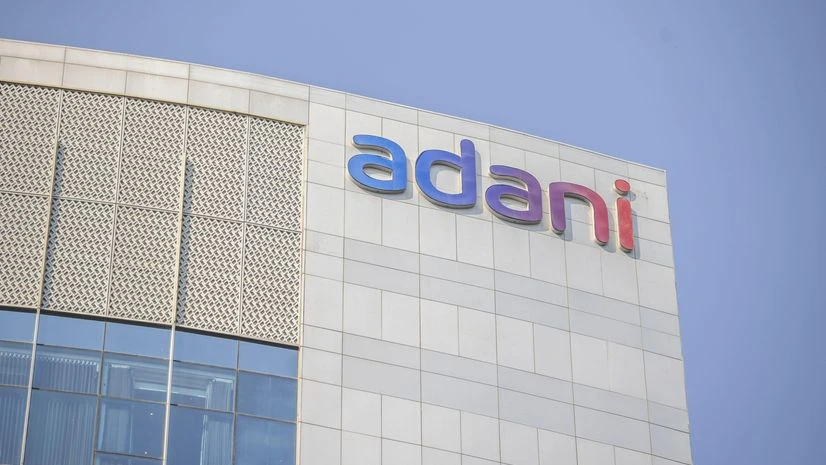Markets regulator Securities and Exchange Board of India (Sebi) is said to have found that 12 offshore investment funds allegedly breached disclosure regulations and exceeded investment limits while investing in Adani Group companies, according to a Reuters report citing unnamed sources.
The Sebi probe into Adani Group and FPIs is reported to be looking into potential violations related to how foreign investors hold shares in Adani Group companies. The regulator might be suspecting some FPIs investing in Adani companies to not be genuine public shareholders, but rather acting as proxies for the Adani promoters (owners).
Sebi, according to the report, also suspects that some FPIs investing in Adani companies might not be reporting their holdings accurately.
The Sebi probe into Adani Group and FPIs is reported to be looking into potential violations related to how foreign investors hold shares in Adani Group companies. The regulator might be suspecting some FPIs investing in Adani companies to not be genuine public shareholders, but rather acting as proxies for the Adani promoters (owners).
Sebi, according to the report, also suspects that some FPIs investing in Adani companies might not be reporting their holdings accurately.
Taking the Adani case as an example, let's understand the various scenarios:
Imagine a company has a rule where promoters can only hold 75 per cent of the shares, and the remaining 25 per cent must be public shareholding.
Scenario 1: Genuine Public Shareholder (No Violation)
An FPI named 'Global Investment Fund' genuinely invests its own money and buys shares in this company. This is a legitimate transaction and promotes public participation.
Scenario 2: Proxy shareholder (potential violation)
The promoters secretly set up or control an FPI named 'Sunshine Islands Fund'.
More From This Section
Sunshine Islands Fund then uses its money (which could ultimately be coming from the promoters) to buy shares in the company.
Scenario 2 is a problem because it creates the illusion of wider public participation (more shareholders) when it's actually the promoters controlling those shares indirectly. This violates transparency rules and gives the promoters more control than what's publicly disclosed.
Coming back to the Adani case, let's understand allegations.
Disclosure violations: These offshore funds might not have been reporting their investments accurately or with sufficient detail, as required by regulations.
Investment limit breaches: The Sebi investigation suggests that the funds might have exceeded the permissible investment limits set for them.
Earlier this year, Sebi reportedly issued notices to the 12 offshore funds outlining the allegations and seeking clarification.
Context
Sebi initiated an investigation into the shareholding structure of Adani Group companies back in October 2020. The regulator's internal surveillance system identified a red flag – a high concentration of foreign holdings in Adani Group's listed companies. Sebi is trying to determine whether these foreign investors are genuine public shareholders or acting as fronts for the promoters (owners) of Adani Group.
A proxy is someone who acts on behalf of another person. In this case, Sebi suspects that some foreign investors might be acting as proxies for the Adani Group promoters, essentially holding shares on their behalf but not being publicly disclosed as such. The regulator identified 13 Foreign Portfolio Investors (FPIs) for scrutiny.
Who are these FPIs?
Sebi targeted a total of 13 FPIs for scrutiny, including the initial eight mentioned and five additional entities — Emerging India Focus Funds, EM Resurgent Fund, Polus Global Fund, New Leaina Investments, and Opal Investments. However, the investigation faced obstacles as Sebi encountered difficulties in identifying the ultimate beneficial owners of these FPIs and their potential connections to the Adani Group.
Settlement offers: Eight out of the 12 funds have reportedly shown interest in settling the charges by paying a penalty without admitting guilt. The legal representatives of eight FPIs — Albula Investment Fund, Cresta Fund, MGC Fund, Asia Investment Corporation (Mauritius), APMS Investment Fund, Elara India Opportunities Fund, Vespera Fund and LTS Investment Fund — have filed a total of 16 settlement applications with Sebi. The regulator had accused the FPIs of failing to maintain and disclose information about their ultimate beneficial owners as well as for breaching investment limits in listed entities of Adani Group.
Focus of the investigation
Disclosure level: Sebi is concerned about the level of detail provided by offshore funds when reporting their investments in Adani Group companies.
Potential coordination: Sebi is also investigating the relationship between one of the offshore funds and the Adani Group's primary shareholders to determine if there was any improper coordination. This allegation has been previously denied by Adani.
Challenges for Sebi: Identifying the ultimate beneficial owners of these offshore funds and their potential connections to Adani Group has presented obstacles for the investigation.

)
